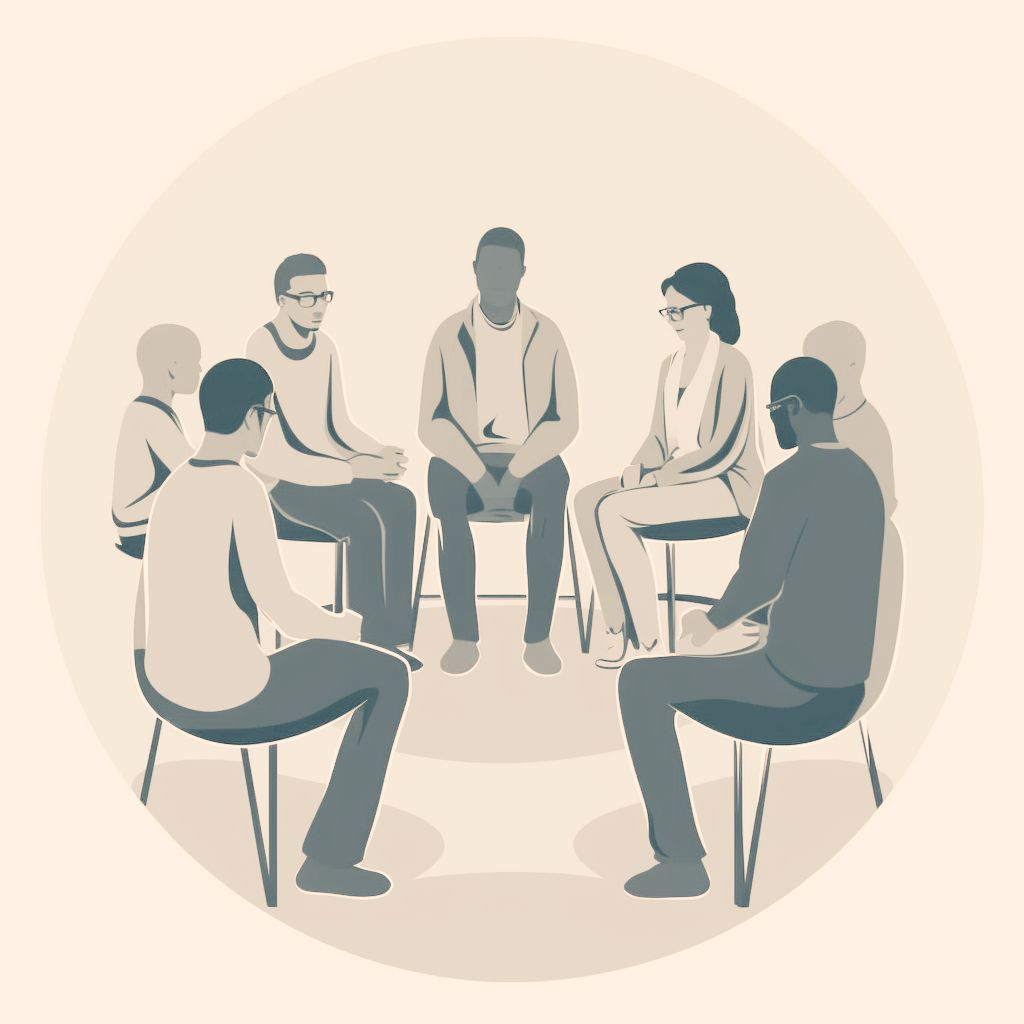INTP and Depression: Unveiling the Connection

The Myers-Briggs Type Indicator (MBTI) classifies individuals into sixteen distinct personality types, and one of these intriguing types is INTP, which stands for Introverted, Intuitive, Thinking, and Perceiving. INTPs are known for their deep thinking, analytical minds, and a love for exploring complex ideas.
Depression is a pervasive mental health concern that affects millions worldwide. According to the World Health Organization (WHO), depression is the leading cause of disability globally, with over 264 million people living with it. Its impact extends beyond emotional suffering, often affecting physical health and daily functioning.
In this article, we will delve into the intersection of INTP and depression. We’ll explore how the unique characteristics of INTPs may influence their susceptibility to depression, backed by scientific evidence and expert insights. Understanding this connection can shed light on effective coping strategies and help INTPs lead healthier, more balanced lives.
INTP Personality Overview
The Myers-Briggs Type Indicator (MBTI) classifies individuals into distinct personality types based on their preferences in four key areas: introversion/extroversion, intuition/sensing, thinking/feeling, and perceiving/judging. INTP stands for Introverted, Intuitive, Thinking, and Perceiving, offering a unique perspective on how individuals approach the world.
| Related: What are the Common INTP Mental Disorders?

Key Characteristics and Traits of INTPs
- Introversion: INTPs tend to be introverted, meaning they gain energy from solitude and introspection. They often enjoy deep thinking and prefer smaller, meaningful social interactions.
- Intuition: INTPs rely on intuition, which allows them to see patterns, connections, and possibilities beyond what’s immediately evident. This trait fuels their curiosity and love for exploring new ideas.
- Thinking: INTPs are known for their analytical and logical thinking. They excel at breaking down complex problems, seeking precision, and making decisions based on rationality rather than emotions.
- Perceiving: INTPs have a perceiving orientation, which makes them open-minded and adaptable. They are more comfortable with spontaneity and prefer to keep their options open.
Strengths
- Problem-Solving Skills: INTPs are exceptional problem solvers. Their analytical minds allow them to dissect complex issues and find creative solutions.
- Intellectual Curiosity: They possess a deep curiosity about the world and are constantly seeking to expand their knowledge.
- Independence: INTPs are self-reliant and are comfortable working alone, making them excellent at tasks that require autonomy.
Weaknesses
- Emotional Expression: INTPs may struggle with expressing their emotions and understanding the emotions of others.
- Procrastination: Their love for exploration can sometimes lead to procrastination as they jump from one idea to another.
- Overthinking: INTPs’ tendency to analyze everything can lead to overthinking, which may contribute to stress and anxiety.
A study published in the journal “Personality and Individual Differences” (Asendorpf et al., 2018) explored the relationship between personality types, including INTP, and various psychological factors. The study found that INTP individuals tend to score high on measures of analytical thinking and introversion, supporting the traits described above.
Understanding the fundamental traits of INTPs is essential as we delve into the connection between INTP personality and depression in the following sections.
Are you an INTP?
If yes, you may like to read about the link between INTP and Schizophrenia.
Read the article above and gain valuable information.
Depression: Causes and Symptoms
Depression is more than just feeling sad; it’s a serious mental health condition that affects a person’s mood, thoughts, and daily life. Clinically, it’s known as Major Depressive Disorder (MDD) and is characterized by persistent feelings of sadness, hopelessness, and a loss of interest or pleasure in activities once enjoyed. Depression can have a profound impact on one’s overall well-being, relationships, and physical health.

The American Psychiatric Association provides comprehensive information on depression, its definition, and its clinical significance.
Causes
Depression doesn’t have a single cause, but several factors can contribute to its development. These include:
- Biological Factors: Genetics, brain chemistry, and hormonal imbalances can make some individuals more susceptible to depression.
- Environmental Factors: Stressful life events, trauma, or chronic illness can trigger or exacerbate depression.
- Psychological Factors: Negative thought patterns, low self-esteem, and a history of mental health issues can play a role.
- Social Factors: Isolation, lack of social support, and strained relationships can contribute to depression.
Symptoms
Depression manifests through a range of symptoms, and it’s important to recognize them. Common symptoms include:
- Persistent Sadness: Feeling down most of the day, nearly every day.
- Loss of Interest: A diminished interest or pleasure in previously enjoyed activities.
- Changes in Appetite or Weight: Significant weight loss or gain or changes in appetite.
- Sleep Disturbances: Insomnia or oversleeping.
- Fatigue: A noticeable decrease in energy.
- Feelings of Worthlessness or Guilt: Excessive or inappropriate guilt and self-criticism.
- Difficulty Concentrating: Trouble focusing or making decisions.
- Physical Symptoms: Unexplained aches and pains.
- Suicidal Thoughts: Thoughts of death or suicide.
| Read more: Depression and Sleep Disorders like Insomnia or Narcolepsy | How to Cope
The INTP and Depression Connection
Research into the relationship between personality types and mental health has shed light on how certain traits may influence an individual’s vulnerability to depression. Studies, including those using the Myers-Briggs Type Indicator (MBTI), have examined the connections between personality types, such as INTP, and mental health outcomes.
One study published in the “Journal of Affective Disorders” (Myers et al., 2014) investigated the link between personality types, including INTP, and depression. The study found that certain personality traits, including introversion and a tendency to overthink, were associated with a higher risk of depression.
| Discover: INFP and Depression | What is the Connection?

Why Are INTPs Prone to Depression?
- Overthinking and Ruminating Tendencies: INTPs are known for their deep introspection and analytical thinking. While these traits can be strengths, they may also lead to overthinking and rumination. Constantly dwelling on negative thoughts or past failures can contribute to depressive symptoms.
- Difficulty Expressing Emotions: INTPs sometimes struggle to express their emotions openly. Bottling up feelings can result in emotional distress, a sense of isolation, and an increased risk of depression.
- Perfectionism and High Standards: INTPs often have high standards for themselves and their work. When they don’t meet these standards, it can lead to feelings of failure and self-criticism, which are associated with depression.
Potential Protective Factors Within INTP Personality Traits
- Problem-Solving Skills: INTPs’ analytical and logical thinking can be a valuable asset in managing depression. They may excel at problem-solving, seeking out effective strategies to cope with their emotions and overcome challenges.
- Intellectual Curiosity: INTPs’ natural curiosity can drive them to explore therapeutic approaches, self-help techniques, and resources that can aid in their recovery from depression.
- Self-Awareness: INTPs often possess a strong sense of self-awareness. Recognizing the signs of depression and understanding their own emotional needs is an essential step toward seeking help and treatment.
Research on the positive aspects of personality traits, including problem-solving and self-awareness, is ongoing, but these attributes have been recognized as valuable tools in managing mental health. Their potential for aiding individuals with depression is evident in various therapeutic approaches.
Understanding the complex interplay between INTP and depression is essential for developing effective strategies to support individuals with this personality type in their mental health journeys.
Dive into the fascinating correlation between INTP and depression, then dive deeper into
‘Social Isolation in Depression.’
Explore these intertwined narratives for a profound understanding of mental health.
Coping Mechanisms for INTPs
Coping with depression can be challenging, but INTPs can adopt strategies tailored to their unique personality traits to manage and prevent its onset.
- Developing Emotional Intelligence: INTPs, known for their analytical minds, can benefit from developing emotional intelligence. This involves recognizing and understanding their own emotions, as well as empathizing with the emotions of others. Mindfulness practices, such as meditation and journaling, can help INTPs connect with their emotions and reduce emotional distress.
- Seeking Social Support: While INTPs may value their independence, it’s crucial to seek social support when dealing with depression. Trusted friends and family members can provide emotional support, lending a listening ear and offering a sense of belonging. Joining social or interest-based groups can also help INTPs connect with like-minded individuals.
- Setting Realistic Goals and Expectations: INTPs often have high standards for themselves. To manage depression, it’s essential to set realistic goals and expectations. Break down larger tasks into smaller, achievable steps, and celebrate small victories along the way. This approach can reduce feelings of inadequacy and boost self-esteem.
| Suggestion: Top 10 Self-Care Practices for Depression

While coping strategies can be beneficial, professional help and therapy play a crucial role in managing depression effectively. Therapists, psychiatrists, and counselors are trained to provide evidence-based treatments that address the root causes of depression. For INTPs, therapy can offer:
- Emotional Guidance: Therapists can help INTPs navigate their emotions, teaching them how to express feelings constructively.
- Cognitive Behavioral Therapy (CBT): CBT is an effective therapeutic approach for depression that focuses on identifying and changing negative thought patterns.
- Medication Management: In some cases, medication prescribed by a psychiatrist may be necessary to balance brain chemistry and alleviate depressive symptoms.
- Social Interaction: Therapy can provide a safe space for INTPs to practice and improve their social skills, which can be valuable in building and maintaining relationships.
Finding the right mental health professional is crucial for effective treatment. Here are some steps and resources to help INTPs or anyone seeking mental health support:
- Talk to Your Primary Care Physician: Start by discussing your concerns with your primary care physician. They can provide referrals to mental health specialists and ensure that any physical health issues contributing to your depression are addressed.
- Search Online Directories: Websites like Psychology Today, Healthgrades, and the American Psychological Association’s (APA) Psychologist Locator can help you find licensed therapists and psychologists in your area. You can filter by location, specialty, and insurance.
- Contact Your Insurance Provider: If you have health insurance, contact your insurance provider to get a list of in-network mental health professionals. This can help you maximize your insurance benefits.
- Seek Recommendations: Ask friends, family members, or colleagues for recommendations. Personal referrals can provide valuable insights into a therapist’s approach and effectiveness.
- Consider Teletherapy: In the digital age, many therapists offer teletherapy services, allowing you to access professional help from the comfort of your own home.
- Check Credentials: Ensure that the mental health professional you choose is licensed and has experience in treating depression or related conditions.
Remember that seeking help is a courageous and proactive step toward improving your mental health. Don’t hesitate to reach out to a mental health professional who can provide the guidance and support you need on your journey to recovery.
Also Might be Interesting…
HealWiser’s Last Piece of Advice
Understanding the interplay between INTP and depression is vital. It not only empowers individuals to recognize potential risk factors but also guides them toward tailored coping strategies. Seeking professional help is a crucial step on the path to recovery.
Continued research into the relationship between personality types and mental health, including INTPs, is essential. By raising awareness and promoting dialogue, we can better support those who may be grappling with depression while sharing the message that help and hope are always available.
Remember, you are not alone, and seeking assistance is a brave and commendable step toward brighter days ahead.
Sharing your experiences can provide valuable insights and emotional support. So…
…share your story with HealWiser and others in the comments section below this post.





